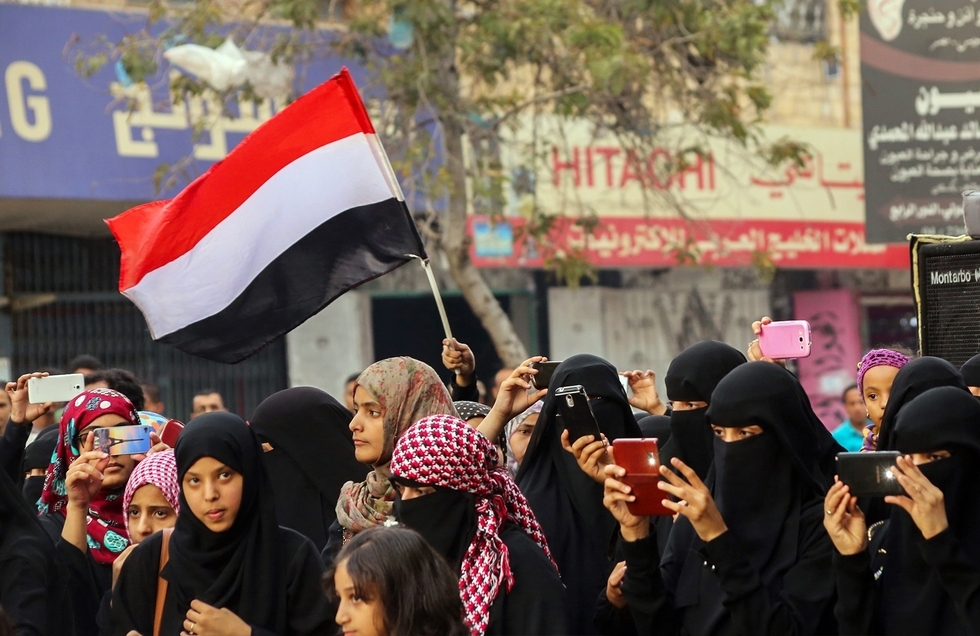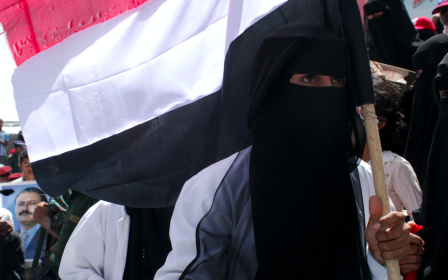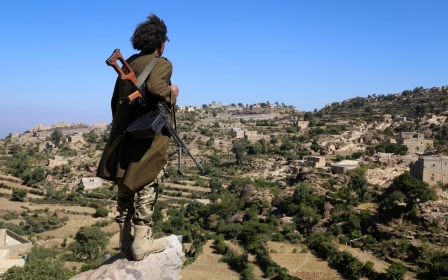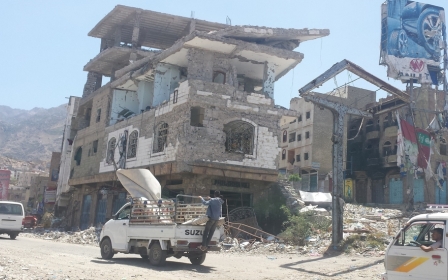Yemeni charity worker murdered, sparking fears of targeted campaign against women

TAIZ, Yemen - A female charity worker, who campaigned to improve women's literacy in Yemen, has been murdered in a drive-by shooting in central Taiz, sparking fears of a campaign of targeted assassinations against women by "extremists".
Amat al-Aleem al-Asbahi was shot dead on 25 December by two motorcycle riders as she walked on the busy 26 September Street. Her death sent shockwaves through Taiz's activist community, who say they can no longer operate in the war-torn city in safety.
All sides in Yemen's ongoing conflict condemned the attack, while blaming each other claiming multiple motives. But no one has been arrested and Asbahi's death was little reported locally as journalists fear retribution by those responsible.
Asbahi, who was in her 30s, is a relative of the pro-Houthi governor of Taiz Abdu al-Ganadi, leading to claims by family members she was killed by hardliners from the anti-Houthi group known as the Popular Resistance Committees.
The area where she was murdered is controlled by the Popular Resistance, leading to further claims Asbahi was killed not for her work, but for her family's links to the Houthis.
However, last year women activists said they feared for their lives after a fatwa was issued by noted Islamic scholar Abdullah al-Odaini banning them from mixing with men. Many female charity workers, such as Asbahi, had already been forced to cut their activities due to fighting in Taiz province.
MORE: Fatwa forbids work of female activists in Taiz
Shatha Nageeb, a fellow charity worker who, like Asbahi, was forced to stop her work, told MEE: "The assassination of Asbahi is a clear indication that extremists can kill women with impunity, so we have to reduce our work and postpone any social activities until the end of the atrocious war.
"I thought all sides would defend women, but I am shocked to see that only a few people have talked about the assassination of Asbahi, as they fear the extremists and there is no organisation that supported Asbahi."
Asbahi's family was reluctant to speak on record, fearing reprisals from those behind the murder. However, a relative speaking on condition of anonymity told Middle East Eye they blamed members of the Popular Resistance.
"There are no courts in Taiz and we cannot follow the killer, but all of us know that they were supporters of the resistance, and want to send a message to some people by killing a woman," the relative said.
They added that the internationally recognised government of President Abd Rabbuh Hadi must investigate this crime before similar attacks take place.
"All political sides, organisations and activists have to condemn this assassination, and Hadi has to form a committee of investigation, but organisations fear the resistance," the relative said.
"Amat al-Aleem has been killed, but if the organisations and political sides do not support her issue, we will no doubt see similar attacks in future in Taiz."
The Houthis, who control large areas of Yemen and oppose the Hadi government, accused the Popular Resistance of the murder.
"The mercenaries assassinated Asbahi while she was walking in a busy street, and this created a huge development in their strategy," read the Houthi-affiliated newspaper 21 Sept on 26 December.
The General Popular Congress Party (GPC), led by Houthi ally and former president Ali Abdullah Saleh, also pointed the finger at the Popular Resistance.
Popular Resistance denies involvement
The Popular Resistance, however, denied any involvement in Asbahi's death, and blamed "extremists" in Taiz.
"It is not one of our morals to kill a woman in the street, and the assassination of Asbahi is a dangerous development by extremist groups in Taiz, and we condemn this assassination," a source from the Popular Resistance told MEE.
"The investigation is ongoing into this issue, but definitely the killer is not a member of the Resistance, as it is not in the Resistance's interests to create chaos in areas under its control."
Ahmed Noaman, a sheikh in the al-Asabeh area in provincial Taiz, said Asbahi's death signalled an unravelling of the fabric of Yemeni society.
"Asbahi's assassination is only a sign of the coming chaos in Taiz," he said. "The assassination of a woman is against Yemeni traditions and culture, and against Islam, and we do not hear in Yemeni history about such things.
"This is a black stain on the history of our country, and history will curse Hadi and his government, which paid no attention to such a big issue."
However Nageeb, the Taiz charity worker, said it was not important whether Asbahi was a supporter or opponent of the Houthis - the most important thing was that a woman had been assassinated, and no one was prepared to act.
Middle East Eye propose une couverture et une analyse indépendantes et incomparables du Moyen-Orient, de l’Afrique du Nord et d’autres régions du monde. Pour en savoir plus sur la reprise de ce contenu et les frais qui s’appliquent, veuillez remplir ce formulaire [en anglais]. Pour en savoir plus sur MEE, cliquez ici [en anglais].




